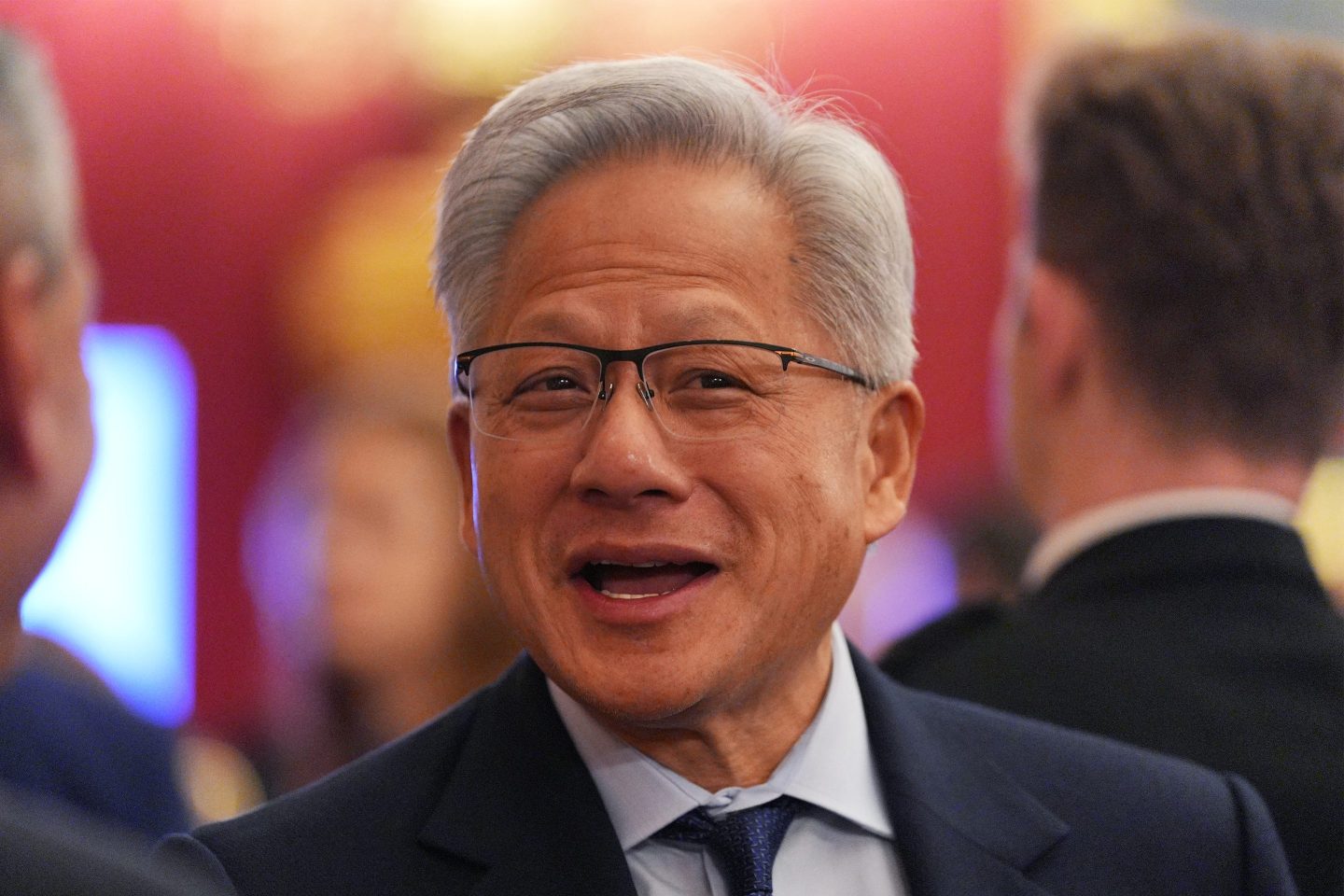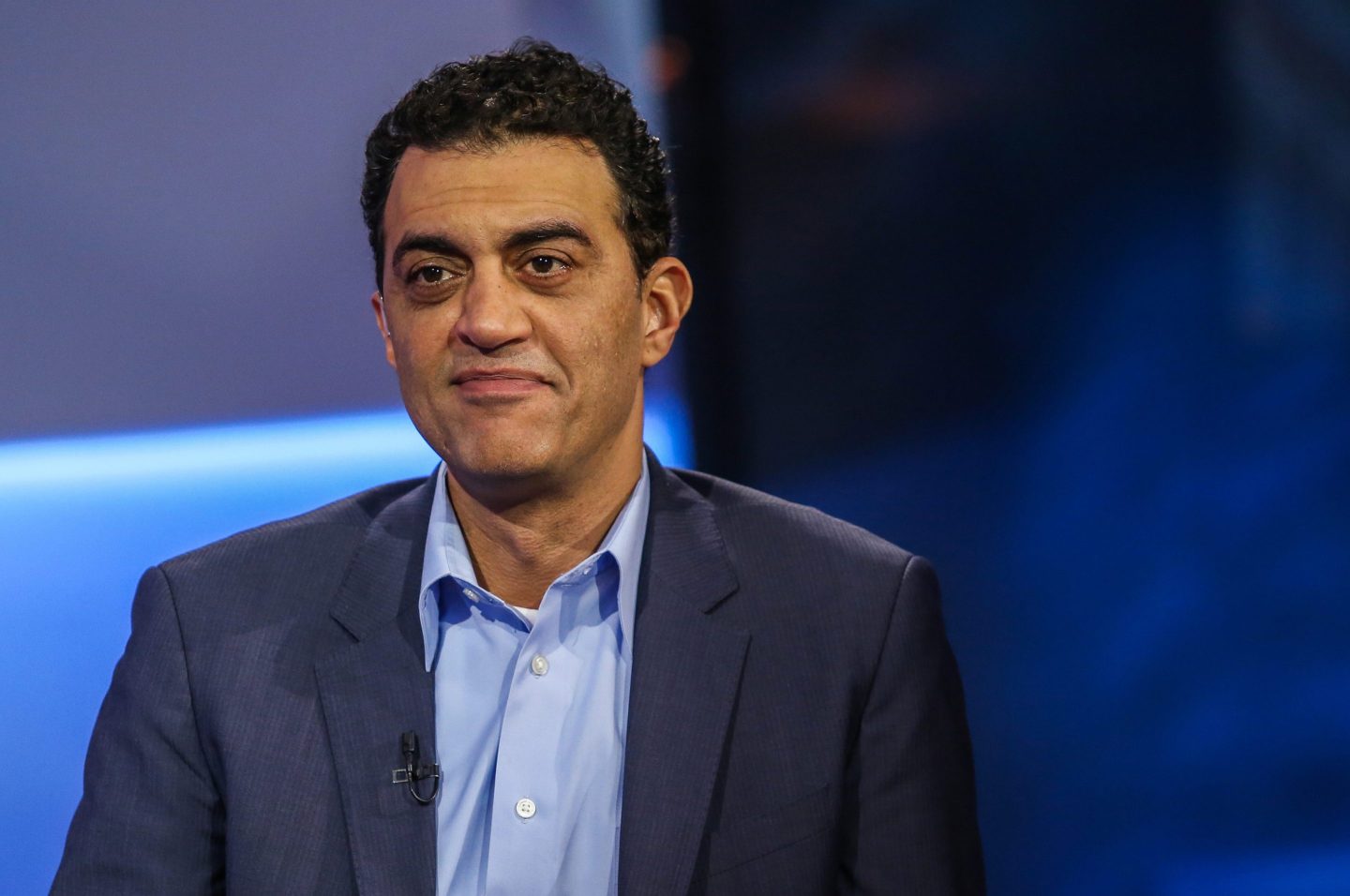Nvidia CEO Jensen Huang is telling employees to lean into artificial intelligence as much as possible—and to stop worrying that doing so will automate them out of a job.
Speaking at an all-hands meeting last Thursday, the day after the chipmaker reported another quarter of record results, Huang reacted sharply to reports that some managers inside the company were urging teams to dial back their AI use. Business Insider listened to the meeting.
“My understanding is Nvidia has some managers who are telling their people to use less AI,” Huang said. “Are you insane?
“I want every task that is possible to be automated with artificial intelligence to be automated with artificial intelligence,” he added. “I promise you, you will have work to do.”
Huang told staff that Nvidia’s own software engineers use AI coding assistant Cursor, and urged workers to keep relying on AI tools even when they fall short. If AI does not yet work for a particular task, he said, employees should “use it until it does” and “jump in and help make it better, because we have the power to do so.”
Silicon Valley leans into AI
Nvidia isn’t alone in this strategy to use AI to build AI. Microsoft in June told staffers that using AI is “no longer optional” and is baking tools like GitHub Copilot into internal workflows, while Meta plans to factor employees’ AI usage into performance reviews. Google in June also told engineers to start using the company’s own Gemini AI for coding, and Amazon employees actually asked the company if it could adopt Cursor for coding purposes as well.
Inside Nvidia, though, Huang made it clear to employees that AI will help them, not replace them. He pointed to the company’s growing workforce, saying Nvidia hired “several thousand” people in the most recent quarter while noting headcount is “probably still about 10,000 short.” Nvidia is also establishing new offices in the U.S. and Asia, including in Shanghai and Taipei.
All eyes on Nvidia
Of course, there’s been a lot of talk about an AI bubble recently, and Huang acknowledged these discussions with employees too. He told employees “the market did not appreciate” Nvidia’s “incredible” quarter: After delivering record-shattering earnings and raising its guidance for the next quarter, the stock initially jumped but then fell the next day as investors again questioned how long the AI spending boom can last.
“If we delivered a bad quarter, it is evidence there’s an AI bubble. If we delivered a great quarter, we are fueling the AI bubble,” Huang said, adding Nvidia is in a “no-win” scenario. “If we delivered a bad quarter, if we’re off by just a hair, if it just looked a little bit creaky, the whole world would’ve fallen apart.”
Externally, some high-profile investors have questioned whether Nvidia’s gains and the broader AI build‑out are sustainable. Michael Burry, known for The Big Short, has been openly skeptical of the AI boom and has taken aim at Nvidia. In his first Substack post, he drew similarities between Nvidia and Cisco’s role in the dotcom boom and bust from the late ’90s. “Companies are allowed to innovate themselves to death. And ever more spring up to do the same. Sometimes the new company is the same company on a pivot,” he wrote.
For this story, Fortune used generative AI to help with an initial draft. An editor verified the accuracy of the information before publishing.












